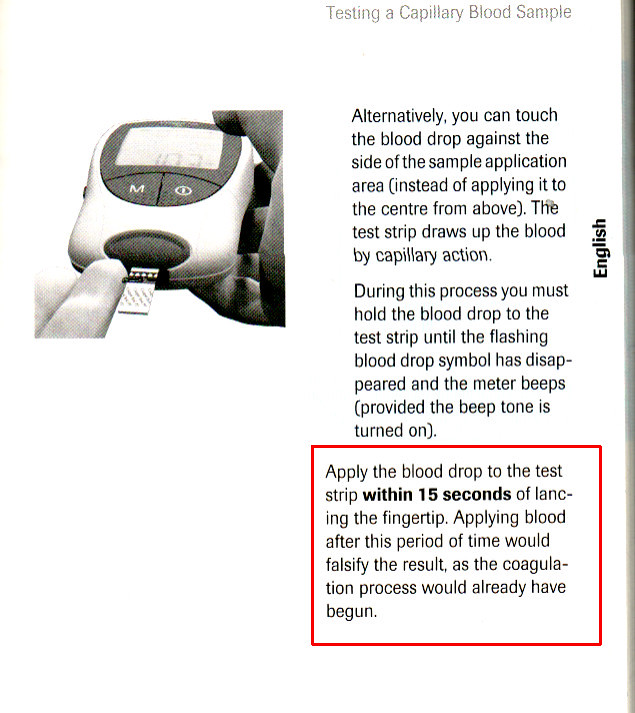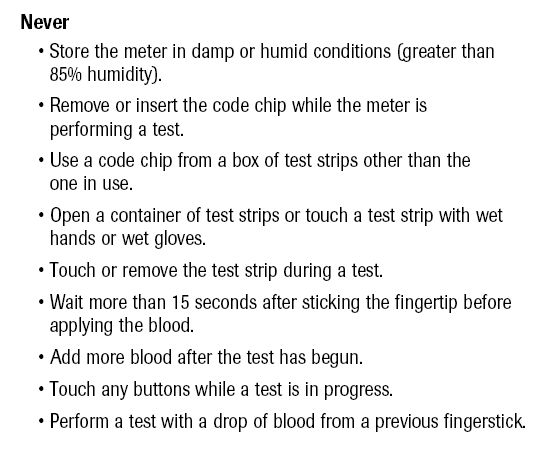A couple things. The CoaguChek XS doesn't really require the tube to get the blood -- just touch the side of your finger against one side of the strip, and capillary action should draw it in. The meter requires blood within fifteen seconds of making that incision, so in the time that it takes to draw it into a tube and then to transfer it onto the strip, you may wind up wasting most of that fifteen seconds. What are you getting for $26 a month? If you're getting six strips a month, that's more than you need. If your insurance supports weekly testing, you're probably doing okay -- but if that insurance company has given you a SIX MONTH supply, and expects you to test only once a month, it's doing you a disservice.
Marty: I did a considerable amount of testing of meters against a hospital lab a few months ago. In my testing, I found that the InRatio (and InRatio 2) were considerably higher than the lab -- so much so that I stopped using the meters entirely, leaving nearly a years' supply of strips to expire because I personally DO NOT TRUST THE INRATIO. Published papers show that many meters (including CoaguChek XS and InRatio) report higher than actual results as the actual INR rises. Your 4.1 may actually be closer to a 3.5 or 3.6 (pehaps 3.7 or 3.8). Your blood chemistry (or ???) may work better with the InRatio than mine did, but I personally do NOT trust my life to that meter. In my testing, I also found that CoaguChek XS tends to report somewhat higher than labs, and this disparity increases as the INR goes up.
By contrast, the Cosg-Sense that I have chosen to use for my primary testing seems to report values a bit lower than labe -- which suits me just fine. I prefer that my INR is a bit on the high side of my range, rather than putting me at the low end (or below the safe level) and possibly at risk of a stroke or TIA.
In summary, I chose between the CoaguChek XS, the InRatio, the ProTime and Protime3, and the Coag-Sense for my personal INR testing. My preference is the Coag-Sense (acknowledging that results may, possibly, be slightly lower than labs), CoaguChek XS and CoaguChek XS Plus (which is often somewhat higher than the labs), ProTime 3 (which makes testing somewhat more difficult than the other meters, and if it was the only meter currently available, the InRatio. But, of course, your choice should be up to you and your medical team.

























